Search Results
Showing results 1 to 20 of 47
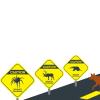
Caution! Wildlife Crossing
Source Institutions
In this design challenge, learners use their creativity and imagination to design and test a wildlife crossing for their favorite animal.
Mercury in the Environment
Source Institutions
In this environmental science lesson, learners will examine the dangers of mercury and how humans contribute to growing mercury emissions on Earth.
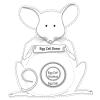
Let's Clone a Mouse, Mouse, Mouse...
Source Institutions
Somatic Cell Nuclear Transfer (SCNT) is a cloning method that involves transferring a nucleus from a somatic cell of the individual to be cloned to an enucleated egg.
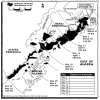
Fragile Waters
Source Institutions
In this activity (on pages 18-29) learners explore the impact of the March 24, 1989 oil spill in Alaska caused by the Exxon Valdez tanker.
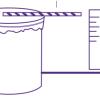
Weather Forecasting
Source Institutions
This activity (on page 2 of the PDF under SciGirls Activity: Forecasting) is a full inquiry investigation into meteorology and forecasting.

Oil Spill Cleanup
This hands-on experiment will provide learners with an understanding of the issues that surround environmental cleanup.
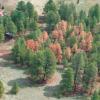
Bark Beetle Infestation Investigation: Estimation and Pheromones
Source Institutions
This activity investigates how bark beetles can threaten forests by having learners estimate the number of infected trees from a photo.
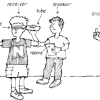
Tracking Otters
Source Institutions
This activity (on pages 38-43) has learners simulate the way scientists track and map the movement of otters in the wild using radio trackers.
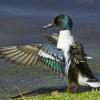
For the Birds: Environmental Effects on Population
Source Institutions
In this activity, learners will investigate how shorebirds and seabirds are extremely vulnerable to changes in their environment, whether human-induced or otherwise.
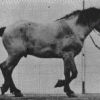
Horse Gaits Flipbooks
Source Institutions
In this activity, learners explore the gait of horses by constructing flipbooks with British photographer Eadweard Muybridge's famous photographs.

The Carbon Cycle: How It Works
Source Institutions
In this game, learners walk through an imaginary Carbon Cycle and explore the ways in which carbon is stored in reservoirs and the processes that transport the carbon atom from one location to another

OBIS Oil Spill
Source Institutions
In this outdoor activity, learners simulate an oil spill using popcorn (both oil and popcorn float on water), and estimate the spill's impact on the environment.

Environmental Chemistry
Source Institutions
In this activity with several mini experiments, learners explore the chemistry that helps scientists learn about the environment and how they can help save it.

Human Impact on Estuaries: A Terrible Spill in Grand Bay
Source Institutions
In this activity, learners make a model of a pollution spill that occurred at Bangs Lake in Mississippi and measure water quality parameters in their model.
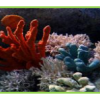
Corals and Chemistry
Source Institutions
In this activity, learners investigate how increased carbon dioxide (CO2) emissions from the burning of fossil fuels is changing the acidity (pH) of the ocean and affecting coral reefs and other marin

Biotechnology Through Time
Source Institutions
In this activity, learners investigate the history and development of agricultural biotechnology.
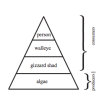
Who Can Harvest a Walleye?
Source Institutions
This activity focuses on interactions within Earth systems and the effects of human activities. In this activity learners build a biomass pyramid.

Help Wanted
Source Institutions
In this interactive board game, learners "hire" different types of scientists to help canine character Ruff Ruffman solve unusual problems.

Trail Impact Study
Source Institutions
In this outdoor activity, learners plan a simple foot path and create an environmental impact study of the natural area where the path would be.
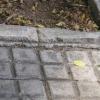
Life in the Sidewalk Cracks
Source Institutions
In this activity, learners compare plant and animal life in different habitats including a sidewalk crack and lawn. Learners sort human-made materials and natural materials found in each habitat.
